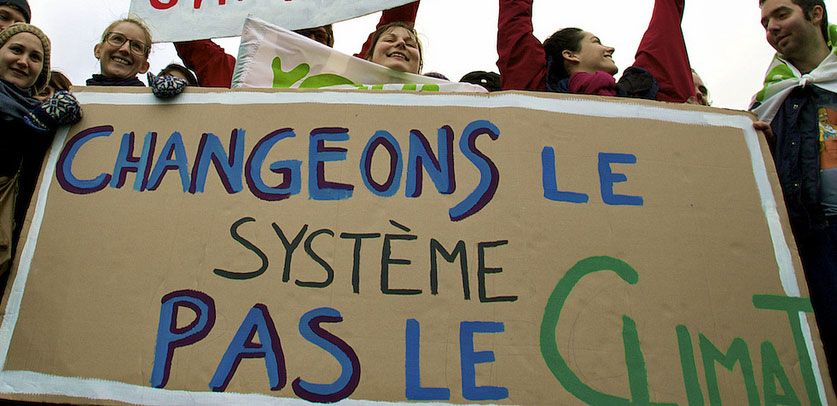Written by Friederike Hanisch, Qatar in Brussels participant
Somewhere in between numerous climate justice discussions, updates from Qatar and probably some of the best vegan meals ever cooked, I held a workshop on economic growth. More specifically, we looked at various issues that are wrong with our growth-addicted economic system ranging from ever increasing resource use (don’t miss out on the impossible hamster), to social pressure to consume ad infinitum and the system’s failure to provide for equity and jobs for all.
So why did I bring up boring economics at a rather exciting youth climate change campaigning week? To use Herman Daly’s words, a growth-critical economist: Climate change, important as it is, is nevertheless a symptom of a deeper malady. It is an expression of a bigger wrong, interlinked with many other social, economic and ecological challenges we face today. By extension, understanding climate change as a single issue and tackling it by itself, without looking at other fundamental, interrelated problems of equity, poverty and resource exploitation the climate justice movement does this to a huge degree already!
One of the main issues we discussed was ways of how to engage (more) people with the economic growth topic in a positive and effective way. While many people appear to be tired of working too much, having too little fun and not enough friends and family around, as well as constantly consuming to just keep up with the latest fashion and their neighbours, this is a tough issue to communicate in public discourse. “Give up your car – this will make you free” may sound sensible to some of us, but a lot of people would tend to turn away when it comes to giving something up they’ve worked so hard for.
This led us to think about the current approach of the fast evolving degrowth movement. This movement seeks to downscale production and consumption in order to increase human well-being and to enhance ecological conditions and equity on the planet. Although the movement focuses on many similar issues that we have discussed in the group, such as the current system’s support of senseless consumerism instead of real life-quality, we felt a certain unease with the movement’s approach. We came to the conclusion that trying to persuade people to give up things, even if it is for one’s own and the planet’s best interests, emphasises the negative and hence doesn’t work. What we need is a positive approach, a vision people can aspire to and really identify with.
Lots of people are working on finding economic models that provide space for a healthy consumption, people’s well-being and a sustainable use of natural resources, without relying on growth as the sole driver.
All of this is not only important for campaigning on issues like climate change, but also on a personal level. I am all against shifting responsibilities on to the individual but we do need to start redefining our role in the economy. What products do you want to use, for what reasons do you want to consume them? Think about these issues, maybe with the use of the New Materialism manifesto. Go beyond thinking about things; think about what you want to get out of the economy and what you want to give back. Doing this individually and collectively, telling different stories (for German speakers read about FuturZwei) and inspiring others, may help us finding a new meaning for our roles in the economy and the economy itself, in which we are not powerless consumers dwarfed by mega-sized H&M posters but empowered and informed individuals that are able to decide how they want to consume and eventually live their lives on this planet.

